Racist political rhetoric directed against Syrian refugees in Turkey knows no bounds, as members of extremist political parties and their supporters find creative ways to describe refugees living on Turkish soil, especially Syrians, with racist phrases that are now echoed in the country’s streets.
This rhetoric, which has been on the rise since 2018, has become a rich material for parties involved in the elections, relying on promises to deport refugees based on the Turkish street’s concerns over problems caused by the refugee situation, which these parties themselves have sown over the years.
From the refugee’s perspective, hardly a month goes by when they start to feel a bit of stability before the “Syrians” trend tops the scene again, forcing refugees to think about packing their bags once more.
Despite the government’s continued official non-discriminatory rhetoric from the platforms, on the ground, the government insists on deporting waves of refugees, later denying forced deportations or describing them as “voluntary returns.”
Under the pressure of this rhetoric, Syrians are searching for safe havens to avoid the ever-fluctuating state of instability, which local politicians cultivate as needed.
Enab Baladi discusses with experts and researchers the instability that refugees in Turkey experience, its outcomes, and the reasons that have led to this extent.
Racist rhetoric and deportation
On June 30, the Turkish city of Kayseri witnessed protests and a state of tension that turned into attacks on Syrian properties following a rumor about a Syrian refugee assaulting a five-year-old Turkish girl.
With the escalation of events, the Governor of Kayseri issued a statement explaining the incident, stating that the Syrian refugee assaulted a girl of Syrian nationality in the Danişment Gazi neighborhood, leading to his arrest by the authorities and placing the girl under protection.
The governor added that the authorities are closely following the case and called on citizens to remain calm and not engage in actions outside of official announcements.
However, events did not stop with the governor’s statement, and soon turned into burning houses inhabited by Syrians, smashing their cars, attacking their shops, and vandalizing their contents.
With the authorities unable to contain the scene throughout that night, the next morning saw damages affecting hundreds of families. The authorities promised to compensate them later, after arresting more than a thousand people involved in the “riots.”
Despite promises to compensate the affected Syrians, the Turkish government dealt indifferently with the affected refugee families. The Turkish Interior Minister, Ali Yerlikaya, visited the area that witnessed the attacks but did not inspect any affected Syrian family, limiting his visit to meeting Turkish citizens in the city’s markets.
Forced deportation in full swing
Despite a few weeks passing since the Kayseri events, the Turkish government has not started compensating the affected. Instead, it forcibly deported hundreds of residents from the area, according to the Turkish Mazlumder human rights organization.
The organization’s director, Ahmet Taş, said to the Turkish newspaper Karar that the events in Kayseri have calmed, but there are still occasional attacks against Syrians, noting that about 350 Syrians are detained in the Kayseri deportation center.
The state must remain within the law in all its practices. They must not deport these people without trial, nor should they send them to countries they do not want to go to. Humane treatment is our duty as a state. If someone is a criminal and the court has issued a decision against them, let them be deported outside Turkey. It does not suit us to expel refugees after torturing them, ignoring our legal framework.
Ahmet Taş, Director of the Turkish Mazlumder organization
A young Syrian who obtained Turkish citizenship, working as a sworn interpreter in the Turkish province of Kayseri, told Enab Baladi that, due to his job, he is familiar with legal cases involving Syrian refugees. These cases have taken a different turn after the Kayseri events at the end of last June, with expedited criminal case resolutions.
The interpreter, who withheld his name for fear of retribution, added that hundreds of deportation orders have been issued this July against Syrian refugees, including those with resolved cases. He noted that the legal process in Kayseri targets deporting any Syrian with a criminal record or anyone involved in a criminal case (plaintiff or defendant).
Forced deportation, Kimlik offers no protection
The young man, Muhammad, is staying at a relative’s house in the city of Ras al-Ain, northwestern al-Hasakah, waiting to return illegally to Turkey after his deportation earlier in July, then continue to Europe in hopes of a better life due to limited living opportunities.
The young man, who requested anonymity for security reasons, does not consider staying in Ras al-Ain a good option. He is from the city of Hama, not a local of the area, job opportunities are limited and scarce, and most residents rely on agriculture as their income source.
Despite having official documents allowing him to stay in Turkey, including a temporary protection (kimlik) card and a work permit, he was stopped by a police patrol in the city of Bursa, where he resided while going to work. The police officers informed him that he was being taken to the immigration office to “update his information.”
The young man explained to Enab Baladi that after going to the immigration office, no updates were made to his information. Instead, he was transferred to what is called the “Foreigners’ Prison,” where he stayed for over ten days and was forced to sign “voluntary return” papers by the center’s staff and police officers before being chained to a bus seat with other young men and transported to the Tal Abyad crossing from where he was deported to Syria.
As for Ahmad, he is waiting to voluntarily return his wife and children from the city of Gaziantep in southern Turkey after being deported alone to the city of Ras al-Ain, despite holding a temporary protection card (kimlik).
Ahmad told Enab Baladi that his only option is to bring his family to Syria, as he cannot return to Turkey.
He added that he was deported from Turkey earlier in July after he left his house in the evening to get medicine for his sick son. He was stopped by traffic police who asked to check his identity, indicating that a traffic violation he didn’t pay for a week led them to direct him to the traffic department to pay the fine, which he did. But he was then transferred to the immigration office to arrange his deportation to Syria.
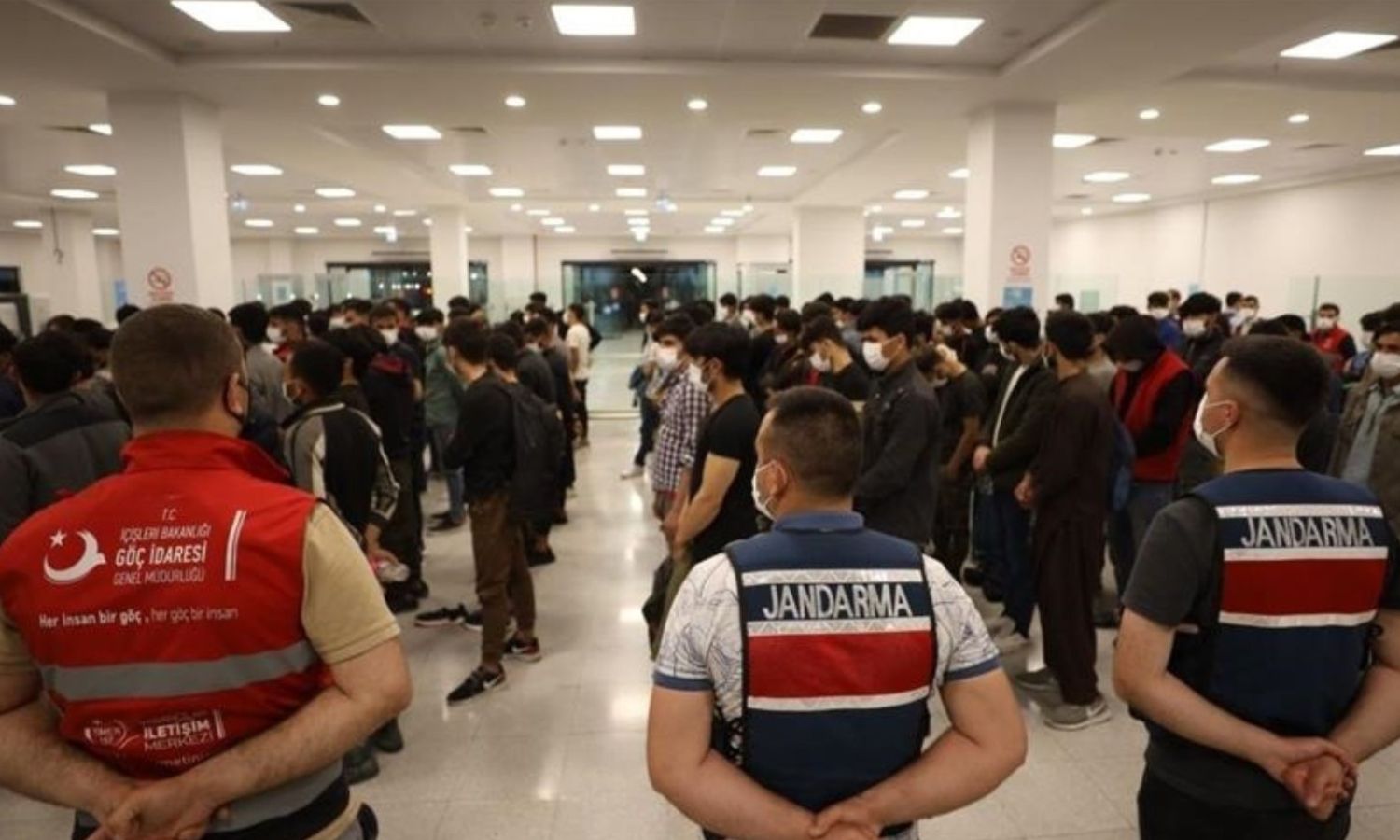
Members of the Turkish gendarmerie and security elements at a detention center for refugees (Anadolu Agency)
Thousands of deportees
The stories of these two young men are examples of thousands deported from Turkey to northern Syria, as border crossings with Turkey witness daily movements of Syrians forcibly deported from Bab al-Hawa, Bab al-Salameh, Tal Abyad, and Jarablus.
Mazen Alloush, the media office director of the Bab al-Hawa crossing, told Enab Baladi that the number of returnees from Turkey to northern Syria through the crossing, in the first half of 2024, amounted to 24,334 Syrian citizens. These were divided into 11,973 “voluntary returnees” and 12,361 deportees.
He explained that the number of returnees through Bab al-Hawa from the 1st to the 9th of July this year reached 1,144 Syrians, distributed into 606 “voluntary returnees” and 538 deportees.
In 2023, Bab al-Hawa crossing witnessed the movement of 20,319 people from Turkey to northern Syria, including 11,079 “voluntary returnees,” 7,653 people forcibly deported, and 1,587 people under the category of “recently deported.” These are individuals who entered Turkey illegally (smuggling), were recently caught near the border, and were returned.
Some crossings, including Bab al-Salameh and Jarablus, are cautious about using terms like “deportation” or “forced return,” listing the deportees under “voluntary returnees,” despite Turkish authorities handing them over to the crossing officials.
Faiz al-Kata’a, the director of the Tal Abyad border crossing, told Enab Baladi that the number of returnees from Turkey through the crossing in the first half of 2024 reached 7,600 people, without specifying the percentage of deportees. He noted that May and June witnessed more “voluntary returns” than deportations.
The statistics of “voluntary returnees” from the Bab al-Salameh crossing in 2023 amounted to 22,800 people, while the number of returnees in the first half of 2024 reached 13,653 people.
The number of “voluntary returnees” through the Jarablus crossing in the first half of 2024 reached 12,333 people, all under the category of “voluntary return,” according to crossing statistics.
Syrians seeking salvation
With the rise in racist rhetoric against Syrian refugees in Turkey, anxiety and fear have once again gripped the refugees, accompanied by a desire for salvation and leaving Turkey either to northern Syria or migrating to Europe. This situation is evident in the rush of Syrian families to sell their home furniture at low prices compared to its quality and usage period.
Enab Baladi met with four families in Istanbul who recently moved to sell their home furniture due to increased pressure on Syrians, exacerbated by events in Kayseri and recent Turkish statements about normalizing relations with the Syrian regime.
These families were offering their belongings for sale at low prices on social media. When asked, a Syrian family from Aleppo said they preferred to return to northwestern Syria due to the deteriorating conditions in Turkey, negatively impacting their psychological and physical well-being due to constant worry about their stay in the country coming to an end.
The family, living in the neighborhood of Gaziosmanpaşa in Istanbul, listed all their home furniture for sale for 30,000 Turkish lira (equivalent to about 1,000 US dollars), but eventually agreed to sell it for 25,000, as the family head told Enab Baladi.
No clear destination
Official Turkish statements about rapprochement with the Syrian regime have heightened refugees’ fears of deportation if the two sides meet. Some prefer to choose the route to Europe without knowing their final destination.
Haneen, a Syrian family member living in Istanbul, believes that the final destination remains unknown, but the route is clear. She intends to move with her family from Turkey to Greece by sea, then to Europe by air.
She told Enab Baladi that, in truth, the destination is not important; the priority is to leave Turkey as soon as possible without looking back.
I don’t know where we will go or which country we will choose. All I know is that we must leave Turkey as soon as possible, selling everything we own without looking back.
Haneen, a Syrian refugee in Istanbul
Haneen, 29, from the Damascus countryside, is preparing with her family of five, including three children, to travel to Europe by the end of July by sea, fearing deportation to Syria.
Haneen added that northwestern Syria is dangerous and subject to shelling from the Syrian regime or its Russian allies at any moment, noting that she cannot risk her children’s lives as long as she has the means to attempt migration.
On May 27, Amnesty International confirmed that human rights organizations unanimously agree that there is no place in Syria considered safe for the return of refugees.
Currently, Turkey hosts 3,111,047 Syrian refugees under the temporary protection system, according to the latest statistics from the Turkish Presidency of Migration Management on July 4.
The temporary protection law, enacted in April 2014, includes provisions to protect refugees residing in the country and manage the refugee file, the most prominent being non-refoulement. However, this key provision has been repeatedly violated for years.
Despite the law, under which more than 3.1 million Syrians reside, as per official statistics, it remains unclear, and there are several violations, which some classify as “individual errors,” besides the fact that Syrian refugees have become a topic in Turkish domestic politics.
Forced deportation violates Syrian refugees’ basic rights, and according to the international customary law, the principle of non-refoulement prohibits any host country from returning any person to their country, whether they are asylum seekers or approved refugees, regardless of their legal or illegal entry into that country.
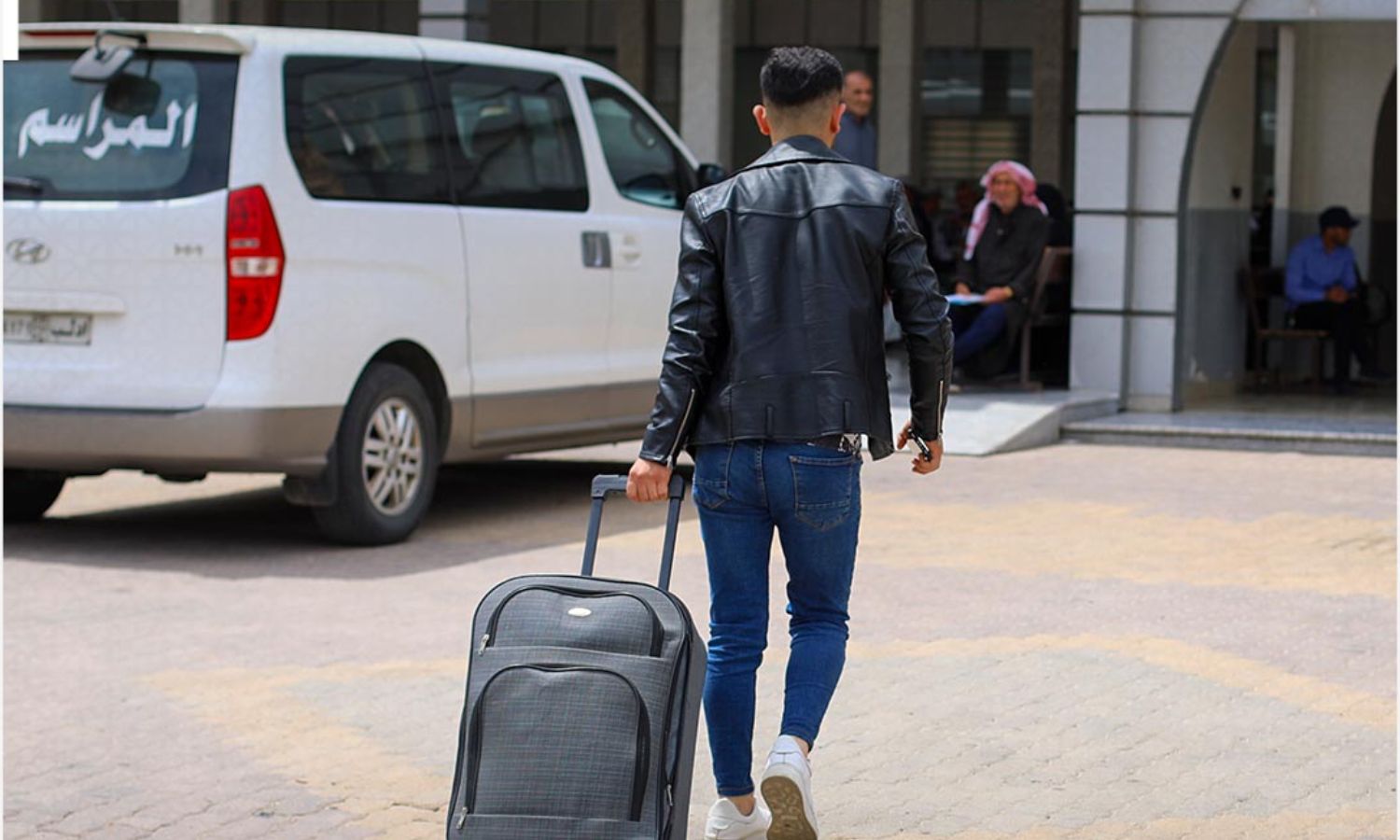
The border crossings in northern Syria receive deportees from Turkey and “voluntary returnees” on a daily basis – May 15, 2024 (Bab al-Hawa crossing)
Where is the Syrian opposition?
Questions always arise about the role of the Syrian opposition, which is hosted by Ankara and considered a representative of the Syrians in Turkey, at a time when violations of refugees’ rights continue, amidst the modest activity of opposition entities in compensating the harmed or providing legal support for them.
In the past years, the activities of the opposition institutions and figures have not resulted in tangible outcomes in protecting Syrian refugees’ rights. Despite the existence of the Joint Syrian-Turkish Committee under the Syrian National Coalition, its efforts remain modest compared to the scale of violations.
Human rights activists and advocates are trying to defend the Syrians and raise their voices through the media or by forming public opinion, relying on their relations with Turkish organizations or decision-making circles. Syrian projects have also been initiated to resolve the legal issues faced by Syrian refugees in Turkey.
Regarding the opposition’s efforts on the service and legal levels for refugees in Turkey, Ahmed Bakoura, Coordinator of the Refugees and Displaced Persons Working Group in the Syrian National Coalition, told Enab Baladi that as a result of a meeting between the Turkish Ministry of Interior and the Syrian National Coalition, the Joint Syrian-Turkish Committee was established in July 2019.
The committee was established to respond legally to the concerns of Syrians in Turkey, which include issuing kimlik cards, assisting in appointments, and resolving violations.
Shortly after the formation of the committee, a technical team was formed, focusing its work on providing a range of services, including legal consultations, legal support, relief support, educational support, and health support.
The largest share of the work focused on legal consultations, according to Bakoura, who pointed to several pivotal work experiences undertaken by the committee.
He added to Enab Baladi that in 2019, during the legal campaign against violators of the temporary protection card, the committee prepared lists, contacted the Migration Department, and outlined the challenges and difficulties faced by the Syrians, working to resolve critical cases.
Also during Syrians’ attempts to cross the Greek-Bulgarian borders at the end of the same year, the committee had a field presence on the ground with the Turkish Migration Administration to assess the needs of the refugees and convey demands and needs to the official Turkish authorities.
During the issues of returning refugees from camps to Syrian cities, the committee worked on settling their legal status, providing return tickets, and arranging their exit and re-entry, assisting more than 100 families at that time.
During the Covid-19 pandemic, the committee’s response to the needs of Syrians was largely humanitarian, gathering lists of needy families, sending them to the relevant authorities, and networking with active entities to deliver relief baskets and aid.
According to Bakoura, legal consultation issues are still ongoing as the committee submitted requests and official letters to the relevant Turkish institutions (mercy petitions, hospital appointments, data update appointments).
During the latest crisis in Kayseri, Turkey, the Joint Syrian-Turkish Committee formed an emergency group with Syrian opinion leaders in Kayseri and held ongoing meetings.
Bakoura also said that since the start of the events, the Joint Committee maintained high-level communication with the Turkish government and influential persons in Turkish society to monitor the situation and try to control matters to the best extent possible.
He added that the Turkish government showed readiness and worked on addressing the violence campaigns in Kayseri and other Turkish provinces.
The committee also communicated with the security department regarding racist discourse on social media, resulting in the closure of all accounts that broadcasted live streams promoting racism and incitement. They also coordinated with security authorities to enhance security in tension and escalation areas.
Bakoura also mentioned that the committee communicated with the Presidency of Religious Affairs to help calm the situation through Friday sermons and emphasize the need to spread awareness against sedition in Turkish society.
The committee communicated with humanitarian organizations to provide basic necessities for Syrians in the city of Kayseri and managed to secure bread for some urgent humanitarian cases.
He added that the Syrian National Coalition is still diligently working to secure compensation for individuals who suffered damages during the events in Kayseri.
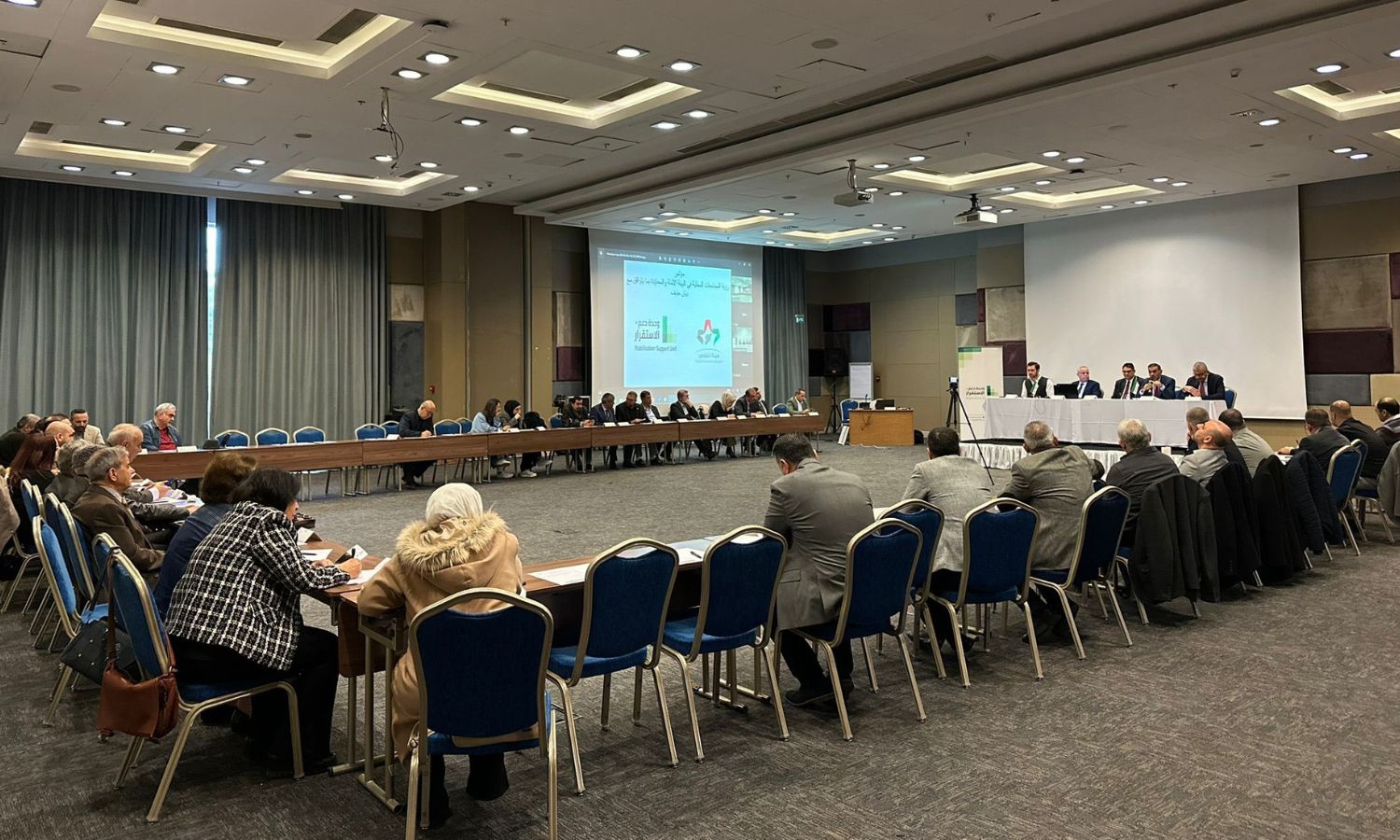
Representatives of the Syrian opposition during a workshop held by the Stabilization Support Unit in Gaziantep, Turkey – April 30, 2024 (Abdulrahman Mustafa)
Negative government role
The recent events in Kayseri were not the first or unique of their kind over the past years, as several provinces witnessed similar incidents against Syrians and their properties, whether due to rumors, quarrels between Syrians and Turks, or other reasons.
The biggest losers in these assaults are the Syrians, who had their properties damaged, suffered physical injuries, lost their lives, or were sometimes forced to be deported.
The events in Kayseri reflected the level of resentment among some segments of Turkish society against Syrians and the weak response of Turkish authorities in deterring such cases or even dealing with them. Although it wasn’t the first, it was the widest, affecting more than 400 houses, shops, and vehicles owned by Syrians.
Lawyer Ghazwan Kurunful told Enab Baladi that, in principle, no state desires social disturbances, whether among its own citizens or between them and refugees, as this can threaten societal security and affect the overall social and economic situation.
In the Turkish case, Kurunful believes that immature policies, statements, and decisions might cause such disturbances.
For his part, researcher Samir al-Abdullah from the Harmoon Center for Contemporary Studies believes that some political and media rhetoric contributed to fueling negative sentiments towards Syrian refugees, exacerbating the problem.
Moreover, the government’s handling of assaults on Syrians “was not sufficient in calming the situation, leading to increased social tensions between Turkish citizens and Syrian refugees.”
Al-Abdullah added to Enab Baladi that the security measures taken by the government were not enough to reassure Syrians or deter some Turks who assault them.
Turkish policies and statements, along with the electoral exploitation of the refugee issue and the incitement by some racists, created a societal tension that found an outlet in the refugees, leading to the events in Kayseri, according to lawyer Ghazwan Kurunful.
Turkey’s policy towards refugees, government statements, and the electoral exploitation of the refugee issue have led to societal tension, resulting in attacks on Syrians.
Ghazwan Kurunful, Syrian lawyer residing in Turkey
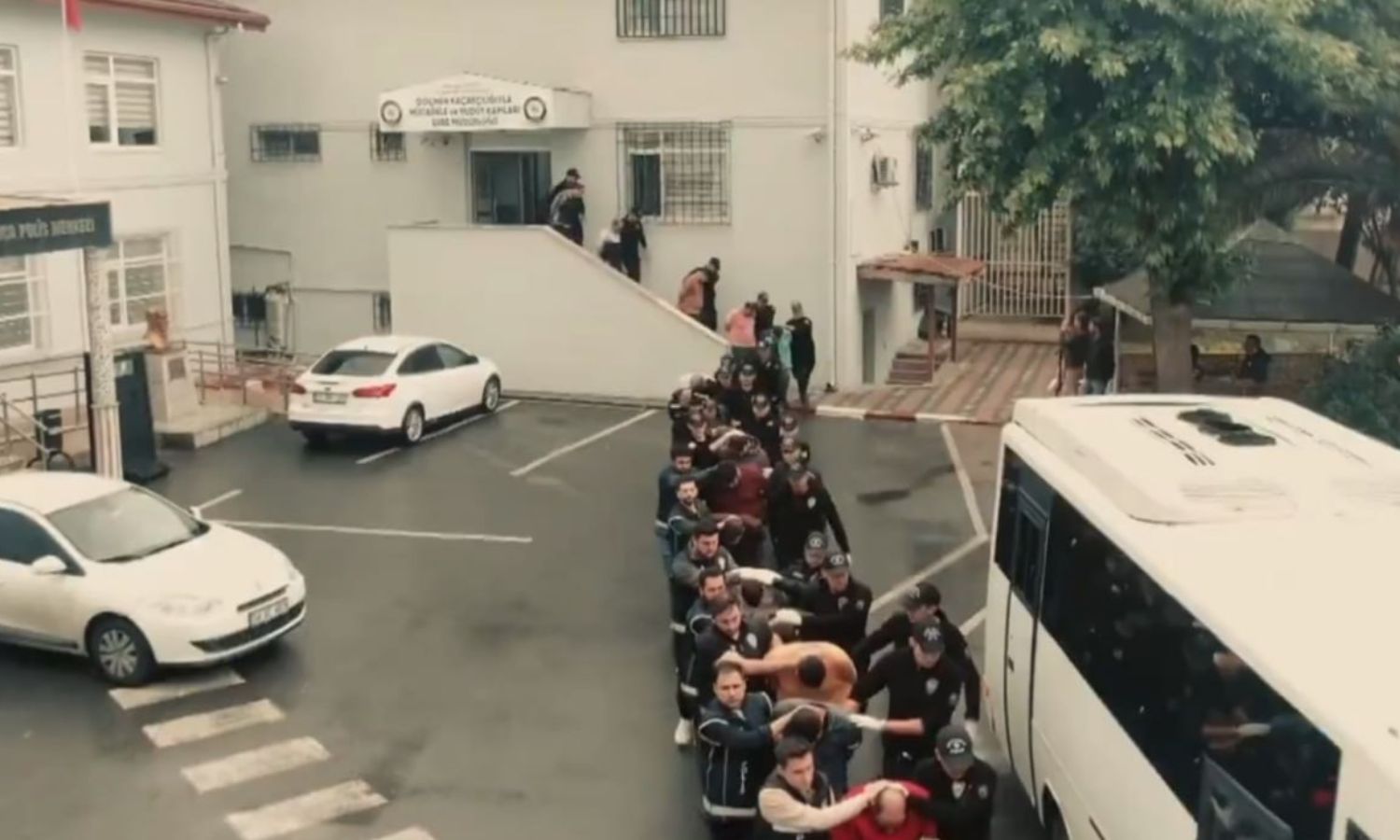
Video footage published by the Turkish Interior Minister shows the arrest of those described as smugglers and illegal immigrants – May 20, 2024 (Ali Yerlikaya)
Open door policy then restrictions and deportation
Since the early days of Syrian refugees’ entry into Turkey in April 2011, the Turkish government adopted an open-door policy for them, followed by waves of refugees crossing the 911-kilometer-long border.
The Turkish government’s approach later changed, building a wall along the border and deploying guard posts to prevent refugees from crossing, especially after signing an agreement with the European Union in March 2016 to prevent refugee crossings.
Attacks on Syrians are not just a phenomenon of the last four years; Syrians were assaulted in several Turkish provinces between 2013 and 2016, including Hatay, Adana, Antalya, and Ankara.
Conversely, official rhetoric, especially from Turkish President Recep Tayyip Erdoğan, continued to welcome Syrians and emphasize not abandoning them, repeatedly saying, “We will never abandon our brothers, and we will never close our doors to Syrians, we simply cannot do that.”
Turkey applied the principle of “Ansar Policy towards Muhajirun,” derived from religious heritage from the Prophet Muhammad’s time, and Erdoğan supported this principle from the beginning.
Welcoming rhetoric was met with other statements, with increasing negative impact as the Turkish economy declined and inflation rates rose, focusing on the amount of money spent on refugees.
In August 2015, Erdoğan said that Turkey had spent $6.5 billion on refugees, later announcing in December 2019 that the expenditure had reached $40 billion without clarifying the source of this money.
On March 18, 2016, Turkey signed three agreements with the European Union regarding the regulation of illegal migration to Europe, in exchange for European facilities and financial support for Turkey.
The agreement included several clauses, including the EU providing six billion euros to help the Turkish government manage its maritime borders and house refugees in camps, in return for European countries accepting a number of refugees whose applications had been approved, followed by Turkish demands for more financial allocations.
Ali Babacan, former deputy prime minister of Turkey and one of the founders of the Justice and Development Party, criticized the statements about the amounts spent on Syrian refugees, describing them as not being significant and including external aid.
Babacan, who served as the head of the budget preparation committee for 11 years, said in a 2021 TV interview that the presence of Syrians could not affect the Turkish economy, explaining that the government calculated expenses using “implicit cost accounting.”
Exploitation and unjust decisions
The Turkish opposition exploited spending figures on Syrian refugees in its incitement against them, escalating its rhetoric during the 2019 local elections, transforming the refugee issue into one of the hottest topics in Turkish politics.
The Turkish political discourse included hanging anti-Syrian refugee banners as part of the opposition’s election campaign on the streets and walls of schools, visible to both adults and children, school students, workers, and various human rights organizations, both local and international.
The restrictions weren’t solely from the opposition nor limited to election periods, although they intensified significantly, as the Turkish government passed laws in the past years affecting the residency and lives of Syrians in Turkey, leading to the displacement of some families and placing others in illegal situations, alongside random forced deportations, including families with children.
In 2019, a pivotal year for the situation of Syrians in Turkey, government measures affected Syrians negatively, with Erdoğan discussing new steps towards Syrians, including encouraging their return, deporting criminals, and imposing hospital taxes.
The Turkish authorities started compelling shops with Arabic signs not compliant with Turkish standards to adhere to the law, with police removing signs, and the Ministry of Labor tightened conditions for obtaining work permits for refugees.
Since May 2022, Turkey has been pushing for the “voluntary return” project for Syrian refugees to Syria, following Erdoğan’s statements about building houses and securing shelter and livelihoods in areas to which refugees would return in northwestern Syria.
Announcements about the number of migrants deported or Syrians “returning voluntarily,” as preferred by the Turkish government, became commonplace.
Comparing the number of Syrians between May 2022 and May 2024, there is a decrease in the number of Syrians living in Turkey by about 645,000 (from 3,763,447 to 3,118,499 Syrian refugees).
Responsibility of the Turkish government
Lawyer Ghazwan Kurunful clarified that the Turkish government’s responsibility is not only to protect refugees and their properties but also to address this issue differently and legally.
Since this is their primary legal responsibility, they must take firm measures to suppress racist behaviors by legal means, ensure that such incidents don’t recur, and provide fair compensation for the refugees’ losses.
Researcher Samir al-Abdullah believes that the Turkish government should strictly apply the law to anyone committing assaults against Syrians to ensure they don’t escape punishment, in addition to promoting a balanced and positive discourse in media and politics and enhancing integration programs in society.
The government should promote a balanced and positive discourse in media and politics, and strengthen programs that help Syrians integrate into Turkish society through education, work, participation in community activities, and launching awareness campaigns to educate Turkish citizens about the culture and life of refugees and the importance of peaceful coexistence.
Samir al-Abdullah, Researcher at the Harmoon Center for Contemporary Studies
Al-Abdullah added that the Turkish government should enact anti-racism laws, track down those promoting hate speech on social media, and limit forced deportation measures against Syrians.
if you think the article contain wrong information or you have additional details Send Correction
النسخة العربية من المقال
-
Follow us :
Most viewed
- Al-Sharaa and Abdi reach agreement on merger of SDF into Syrian state
- Turkey confirms continuation of its operations in northeastern Syria
- Syrian Defense Ministry appoints "Abu Amsha" as Hama Brigade commander
- Governor of As-Suwayda signs understanding agreement with al-Hijri: Key details unveiled
- No financial flows to Syria despite partial lifting of sanctions












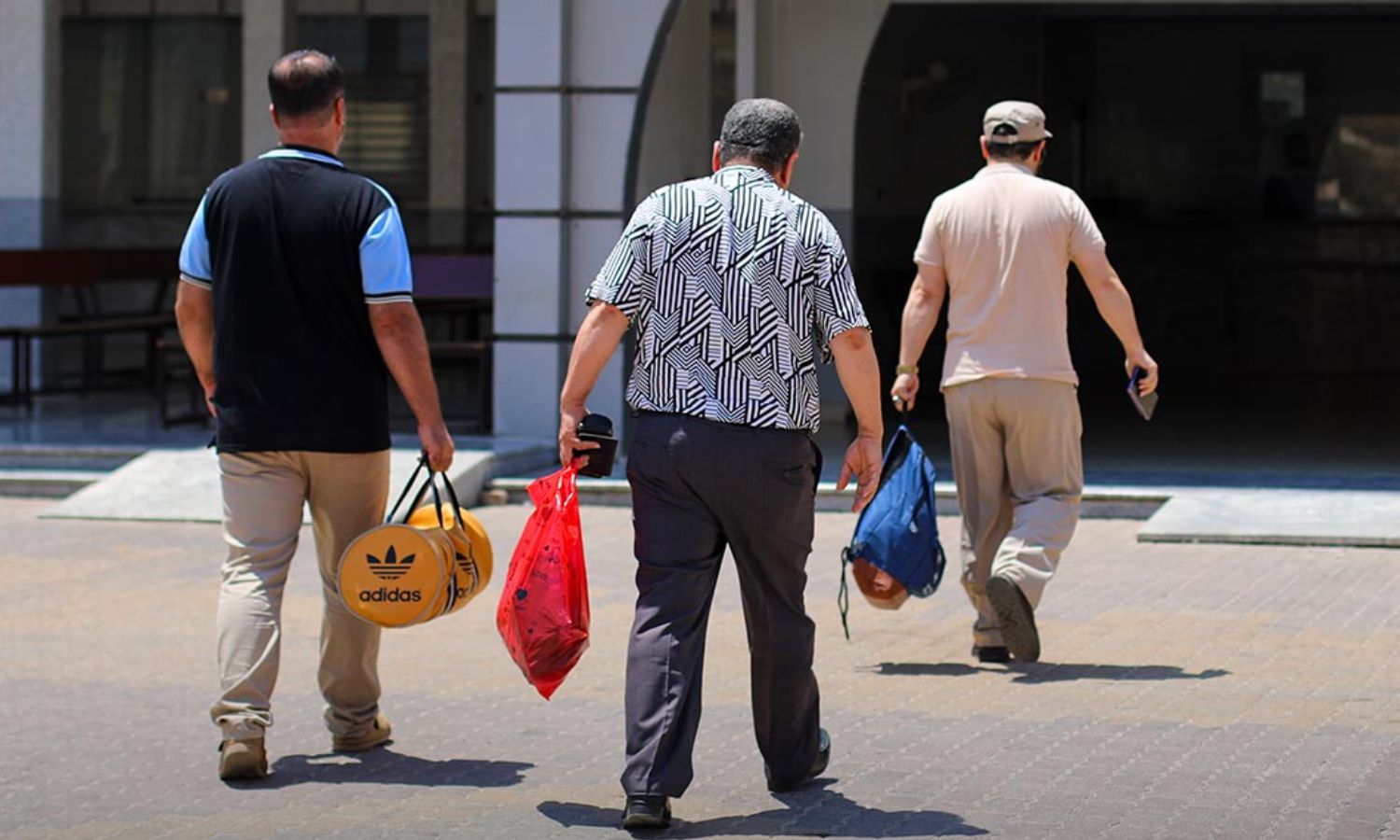
 Travelers at the Bab al-Hawa border crossing between Syria and Turkey - June 31, 2024 (Bab al-Hawa crossing/ Facebook)
Travelers at the Bab al-Hawa border crossing between Syria and Turkey - June 31, 2024 (Bab al-Hawa crossing/ Facebook)





 A
A
A
A
A
A



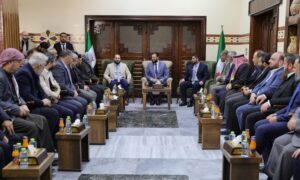

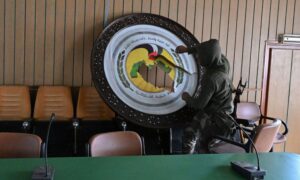
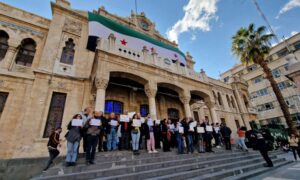
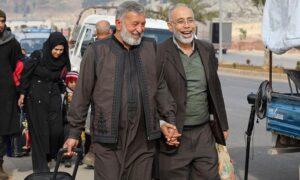
 More In-Depth
More In-Depth